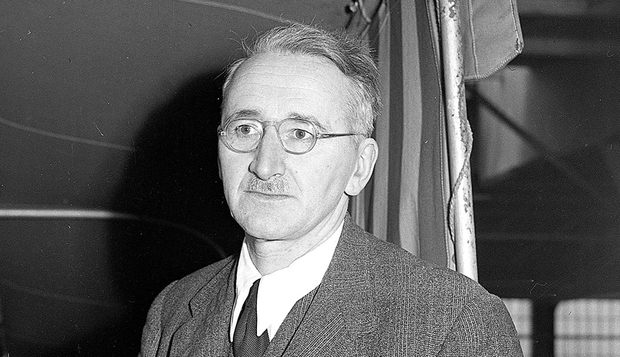Liberty Matters
It’s Not Easy Being Hayekian
 It's interesting that in the latest exchanges here we seem to have moved away from "Hayek's Epistemic Liberalism" to "Hayek's Epistemic Economics." In Pete's recent contribution he follows up on Adam's and Roger's points about how we communicate Hayekian ideas and to whom we should be communicating them. Pete rightly notes that one-half of the trade-off we face is that our natural conversation group in economics sees us as methodologically out of sync, if not deeply suspect, even as they are closer to us on the kinds of questions we find interesting. By contrast, the group of scholars to whom our work's emphasis on meaning and intelligibility would be most congenial finds our liberalism to be problematic. So indeed, to whom should we be talking?
It's interesting that in the latest exchanges here we seem to have moved away from "Hayek's Epistemic Liberalism" to "Hayek's Epistemic Economics." In Pete's recent contribution he follows up on Adam's and Roger's points about how we communicate Hayekian ideas and to whom we should be communicating them. Pete rightly notes that one-half of the trade-off we face is that our natural conversation group in economics sees us as methodologically out of sync, if not deeply suspect, even as they are closer to us on the kinds of questions we find interesting. By contrast, the group of scholars to whom our work's emphasis on meaning and intelligibility would be most congenial finds our liberalism to be problematic. So indeed, to whom should we be talking?I think the answer is that we have to find a way to talk to both groups, though for different reasons. In short, while economics will always be central to Hayekian epistemic liberalism, we need to acknowledge that economics is necessary but not sufficient to fully understand the nature of the liberal order and why it is good. We need the contributions of things like psychology (evolutionary or otherwise), the other social sciences, and philosophy and the rest of the humanities to really engage Hayek's epistemic liberalism, as opposed to just his epistemic economics.
This is why conversations with historians, literary scholars, and artists are, I think, so important. Hayek's famous quip that no one can be a great economist who is only an economist and that an economist who is just an economist is "a nuisance if not a positive danger" seems applicable here. The long history of liberal thought is one that ranges across all of the areas of inquiry. The link between liberalism and a liberal education is not merely etymological. Liberal education, as contrasted with pre-professional or technical education, was always about cultivating the kind of engaged citizens that could sustain liberal democracies. If we mean it when we say Hayek's vision is one of epistemic liberalism, we need a "Hayek for the humanities."
One way to have the needed conversations is to show scholars in the humanities the ways in which Hayekian (and other liberal) ideas have value for the kind of work they already do in their disciplines. What can an understanding of economics in the Mises-Hayek tradition add to how historians do their work? What could public choice theory bring to the analysis of literary texts and the whole discipline of history? What could the idea of spontaneous order bring to literature, the arts, anthropology, and history? What could good political economy bring to philosophy?
A Mises-Hayek approach could be more appealing to these disciplines than is neoclassical economics. The latter is easily (if too quickly) dismissed by humanities scholars for its assumptions about human motivation and knowledge and its mechanistic portrayal of human social processes. Of course those objections too easily slide into objections to liberal institutions, but that may well be because humanities scholars have never encountered ways of understanding markets that are not guilty of the sins in question. Hayekians might be able to make some headway in the humanities by offering an understanding of how markets operate and why they are good that is rooted in conceptions of human behavior and institutions, and that are examined with methods more congenial to humanities scholars.
After all, one of the intellectual lodestars of the humanities these days remains Michel Foucault, who at the end of his life was suggesting that people needed to read Mises, Hayek, and other liberal scholars to better understand the liberal social order and the limits of state control.
I am not at all suggesting that we as Hayekian economists neglect the discussions in our own discipline. In fact, one of the great advances since the start of the Austrian revival in the 1970s is that more scholars working in that tradition have been able to get published in very good journals and have their work taken seriously by top scholars working in the mainstream. But if the goal is to forward the broader vision of Hayek's epistemic liberalism, Hayekians are going to have to go beyond the disciplinary conversation in economics and take Hayekian thought to the rest of the academy. No one says that process will be easy, but it's necessary. We will not have a truly liberal intellectual vision, nor a truly liberal society, without contributions from the rest of the social sciences and the humanities. Hayek understood that, and we should follow him down that road.
Copyright and Fair Use Statement
“Liberty Matters” is the copyright of Liberty Fund, Inc. This material is put on line to further the educational goals of Liberty Fund, Inc. These essays and responses may be quoted and otherwise used under “fair use” provisions for educational and academic purposes. To reprint these essays in course booklets requires the prior permission of Liberty Fund, Inc. Please contact oll@libertyfund.org if you have any questions.